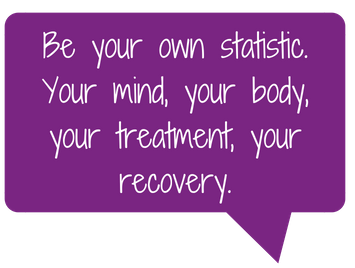How long does someone live after a pancreatic cancer diagnosis?
We understand that receiving a diagnosis of pancreatic cancer can be a time of stress and worry and one of the first questions that is often asked is: “how long do I have left to live?”

Truthfully, there is no definite answer. The treatment and rehabilitation processes of pancreatic cancer are entirely dependent on each individual person. However, the earlier the diagnosis, the greater the chance of survival; which is why knowing the signs and symptoms of the disease is paramount in the fight against pancreatic cancer.
Age, health and fitness can also be an influential factor on a patient’s recovery. If you have been diagnosed with pancreatic cancer, it is important is to try and maintain a healthy mind and body and follow any advice that your healthcare professionals have given you for the best treatment and recovery possible.
Healthy Mind
The last thing you want to hear when you, a friend or a family member has been diagnosed with pancreatic cancer is to stay positive. The mind and body need time to process this news and we understand that you’ll worry. However, we want you to remember that: you’re not alone. Try to talk to someone. Whether it’s a friend, a family member or someone who is completely separate from the situation, talking to somebody can be a powerful way to relieve any stress and anxiety your might be feeling.
For more information on the different forms of support available you, click here. 
Healthy Body
We understand that it can be difficult to stay physically active during and after your treatments. As long as you don’t push yourself too hard and are engaging in about twenty minutes of moderate exercise each day, you should be able to maintain the muscle mass and strength you need to fight your diagnosis.
It is also important to maintain a nutritional diet that will aid your body during your treatment and recovery. Your individual needs should be assessed by your GP or healthcare professional.
Try to keep track of your weight during treatment and throughout your rehabilitation, it can be critical in assessing how your body might have changed: your tolerance to certain foods and nutrients; your appetite; and your eating habits.
 |
You can keep track of your weight by keeping a personalised weight diary and using the NHS Calorie Checker. |
For more information on pancreatic cancer, please click here.